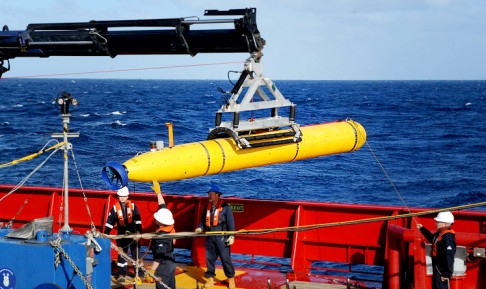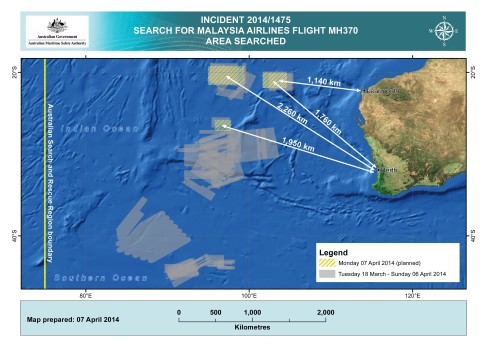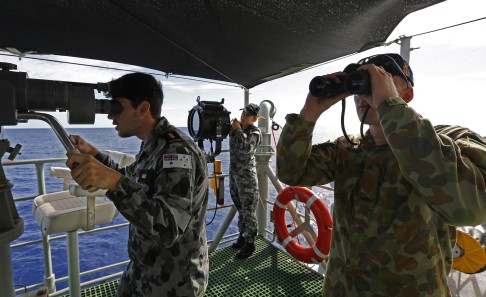- Joined
- Feb 25, 2014
- Messages
- 188
- Points
- 0
Flight MH370 search ships detect more pulse signals from depths of Indian Ocean
Search co-ordinator urges caution over three pulse signals from the potential crash zone
PUBLISHED : Monday, 07 April, 2014, 4:43am
UPDATED : Monday, 07 April, 2014, 9:09am
Associated Press in Perth

An updated handout picture shows the Chinese Maritime Safety Administration (MSA) ship Haixun 01 has reportedly detected a pulse signal in the Indian Ocean and could be from the black box of flight MH370. Photo: EPA
Three separate but fleeting sounds from deep in the Indian Ocean offered new hope yesterday in the hunt for the missing Malaysia Airlines jet, as officials rushed to determine whether they were signals from the plane's black boxes before their beacons fall silent.
The head of the multinational search being conducted off Australia's west coast confirmed that a Chinese ship had picked up electronic pulse signals twice in a small patch of the search zone, once on Friday and again on Saturday.
Yesterday an Australian ship carrying sophisticated deep-sea sound equipment picked up a third signal in a different part of the massive search area.

Angus Houston
"This is an important and encouraging lead, but one which I urge you to treat carefully," said Angus Houston, who is co-ordinating the search.
He stressed that the signals had not been verified as being linked to flight 370, which was travelling from Kuala Lumpur to Beijing when it disappeared on March 8 with 239 people on board.
"We have an acoustic event. The job now is to determine the significance of that event," Houston said, referring to each of the three transmissions. "There are lots of noises in the ocean, and sometimes the acoustic equipment can rebound, echo if you like."
The British navy ship HMS Echo was moving to the area where the signals were picked up by the Chinese patrol vessel Haixun 01 and would probably get there early today, Houston said.
The Australian navy's Ocean Shield would also head there, but would first investigate the sound it picked up, he said.
Speculation regarding the plane's flight path also grew after a report claimed the aircraft flew around Indonesian airspace after vanishing from Malaysian military radar.
The Boeing 777 jet might have intentionally taken a route designed to avoid radar detection, CNN quoted an unnamed senior Malaysian official as saying.
Two-thirds of the passengers aboard the missing plane were Chinese, and a group of relatives has been in Kuala Lumpur to follow the investigation.
As some families were leaving yesterday, they issued a letter requesting that the international rescue bodies that found a missing Air France jet in 2009 join the current search operation.
Additional reporting by Teddy Ng











